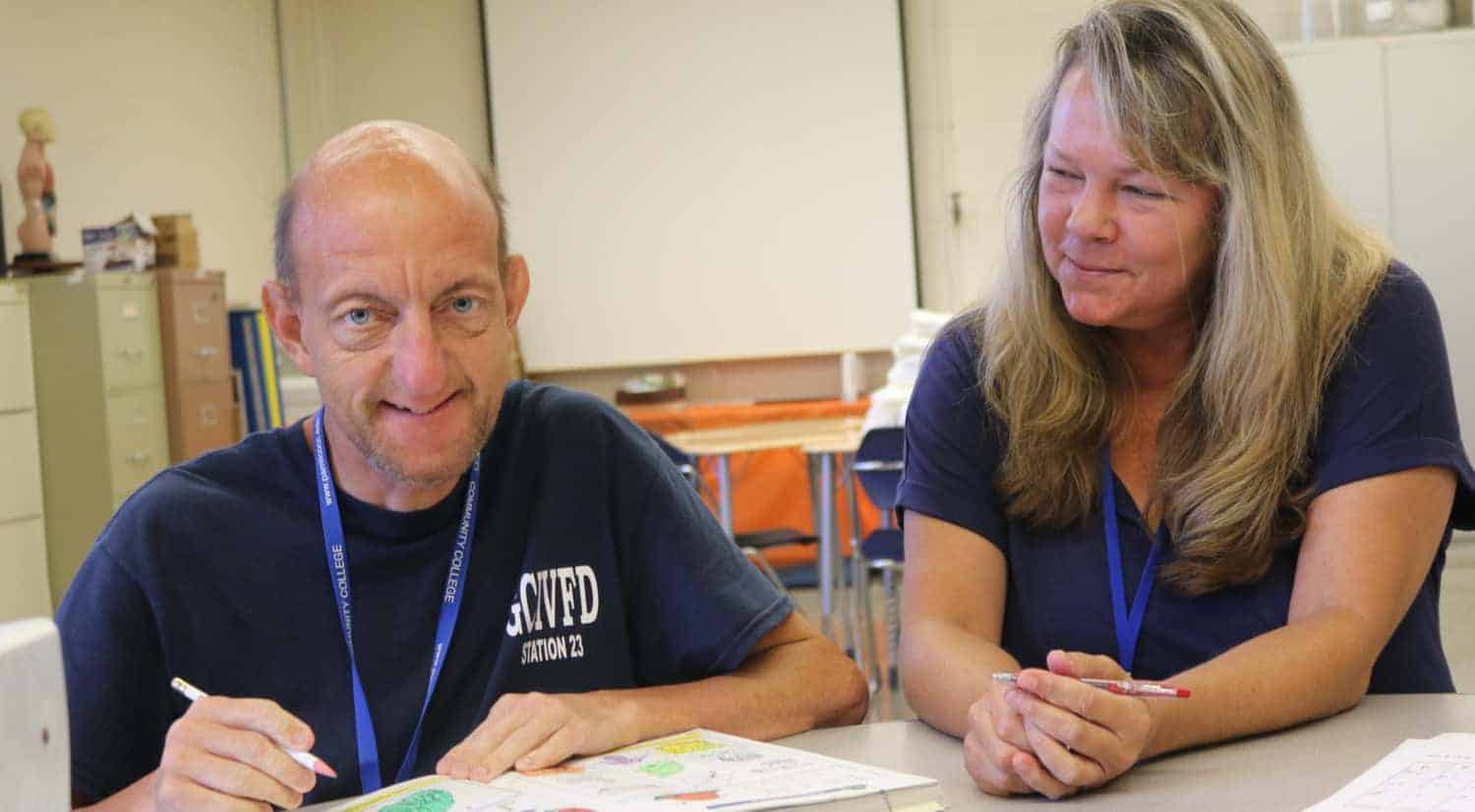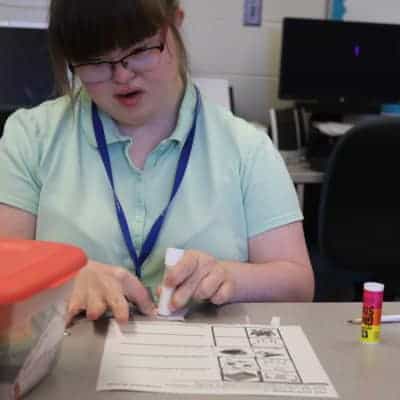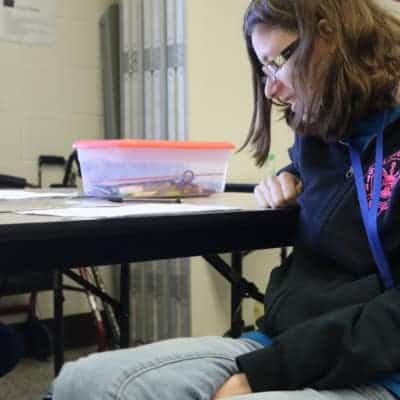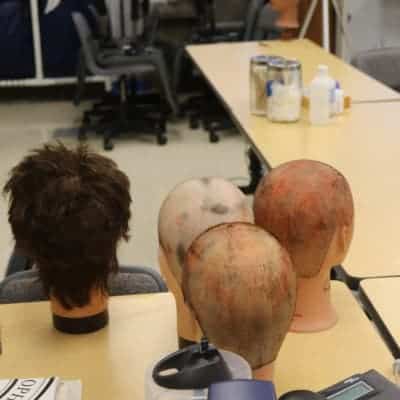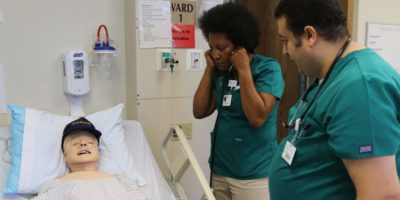If you stop by Pamlico Community College, ask President Jim Ross to do his radio voice. Or his Elvis impression. Or his Johnny Ocean persona. Just do it.

Even if you do not ask, Ross will probably talk to you, in one way or another, about helping others. He has a deep belief in seeing the best in people.
“How do you get someone to like you?” Ross asked me. His answer, which I guessed, was a lesson he teaches his communications class at Pamlico at the start of every semester: “Make them think you like them.”
His second question had me stumped. “How do you make them think you sincerely like them?”
“Eye contact,” was my best guess. He gave me another shot, but when I blanked, he said:
“You sincerely like them.”
Ross’s idealistic philosophy — “I am a card-carrying idealist,” he says in the video below — is at the core of how he sees the roles of his presidency and the college in the community. “As a college president, I find, it is the ultimate way for an idealist to make a difference.”
That mindset, for example, was the basis of Ross’s strategies for increasing enrollment at Pamlico — the smallest community college in the state — when he noticed a national downward trend. Ross said he started by telling faculty the effort would be based on moral obligation rather than appearance or personal interest. Through strengthening community relations and intensified personal advising for students, Pamlico’s spring enrollment increased 13 percent from the year before. Summer enrollment increased 50 percent from the summer before.
“Matter of fact, we could have a mission statement: to make lives better. And that would sum it all up.”
Part of strengthening community ties meant reaching out to nonprofits, a process Ross called “a renaissance of community relations.” Ross said he believes nonprofits are “the backbone of community.” An intern found and contacted every organization in the county and created a directory for organizations and individuals to use to see what resources are available locally. Ross changed the college’s policy around a large auditorium space called the Delamar Center, which used to cost hundreds of dollars to rent for events. He eliminated those costs. Since then, he said three times as many organizations have used the space. The college recently held its second annual breakfast for nonprofits in the area to be celebrated and get connected with each other. As a result, the college heard about Promise Place, a sexual assault support center, and gave the organization an office on campus for students and staff to use its resources.
Michelle Noevere, who serves as both the president’s executive assistant and the executive director of the college’s foundation, called this community investment one of “small but mighty” Pamlico’s strengths.
“Now everybody knows who everybody is — what is available in this county,” Noevere said. “We gave them a chance to talk about their organizations, and it was just a really good bringing together of all these nonprofits.”

Ross said pressure from the state to focus more on performance outcomes forced him to have a conversation with a staff member about either reducing or eliminating a program called community living. The course, which has some students who have attended for more than a decade of their lives, provides social, academic, and every-day skills to disabled individuals in the area of all ages and all types of disability.
“I said, ‘As long as I’m president, that program stays,'” Ross said.
Ross said that since funding cuts, the college chose to continue the program without receiving full-time equivalent (FTE) funds for those enrolled in the course.
Ashley Aldridge, a 27-year-old in the course, is happy about that. She loves helping the other students and takes her education seriously. On top of her work at Pamlico, Aldridge has a tutor who works with her in reading two days a week. Aldridge, grinning, shared she recently took a test and has advanced to a second-grade reading level.
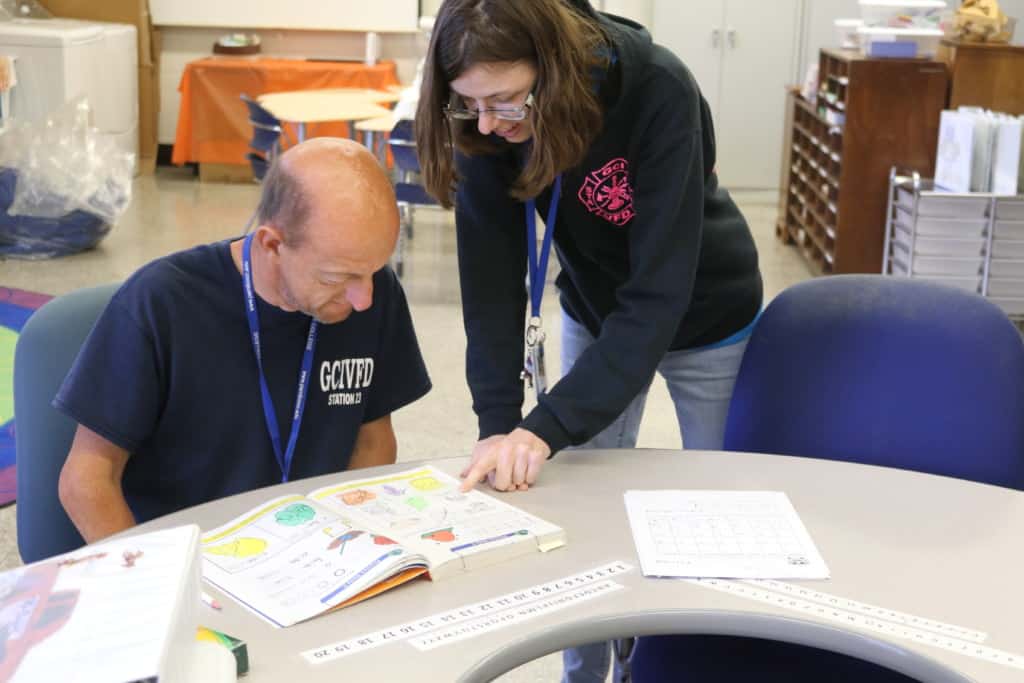
A running joke around the halls of Pamlico Community College is a self-given title: “The 58th largest community college in North Carolina.”
Its size — about 500 students total — can roughly be broken into thirds: campus students, high school students, and Pamlico Correctional Institute inmates. All students are treated with personalized service, said the student support team that prides itself on talking one-on-one with every student at the college, whether enrolled in an online or in-person course.
“I see our smallness as our biggest blessing and our biggest curse,” said Tammy Spain, the college’s registrar. “Our students are not a number here. They’re a face, even if they’re not on our campus, they’re a face.”
Spain said she has seen students’ experiences at Pamlico change the trajectories of their lives through personal relationships with advisors and faculty. Watching those students succeed and graduate, she said, is rewarding.
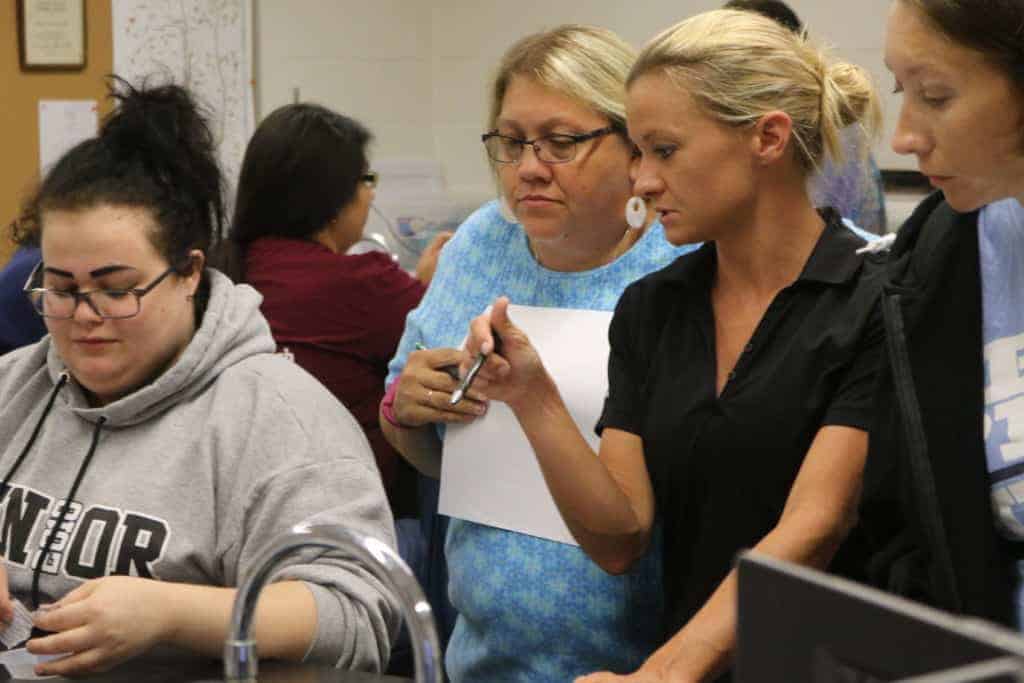
Noevere also said the college’s size comes with benefits, like giving students access to help from senior faculty members like vice presidents. Its size, and the economic challenges of the small, rural county, also present challenges.
“We can be so nimble and so responsive and provide almost a concierge-level service to our students,” she said. “Downside is we are poor. The budget FTEs aren’t forthcoming. We have to really juggle the budget, really be creative with how we serve our students. We all wear a lot of hats.”
Craven Community College is about a half an hour down the road. Noevere said the college often feels they have to compete for students with an institution with more resources and students. Vice President of Student Services Jamie Gibbs explained another challenge that proximity presents. There is not much opportunity to form partnerships with industry in Pamlico County. In neighboring counties, Pamlico can not initiate collaboration with businesses when Craven has a similar program.
“The negative is we’re handcuffed,” Gibbs said. “And what I mean by handcuffed is, there’s industries (in) adjacent counties, but because there’s another community college in the area, we can’t go to them and say, ‘Hey, what can we do for you?’ We have to wait for them to come to us and ask for opportunities. If Craven is offering anything that we’re offering, we can’t go in their area and recruit or solicit. But if we have a unique program, like the EDT, we can get in that service area and promote.”
The EDT (electroneurodiagnostic technology) program Gibbs mentioned is one of two of its kind in the state and trains students on how to administer neurologic diagnostic testing procedures like EEGs and sleep tests. Ronda Rosenbalm, pictured below, went through the program as a student and single mother and was hired this year as an instructor.
“You get to help people without having to go to school for 10 years,” Rosenbalm said. She said students often have jobs lined up before completing the two-year program.
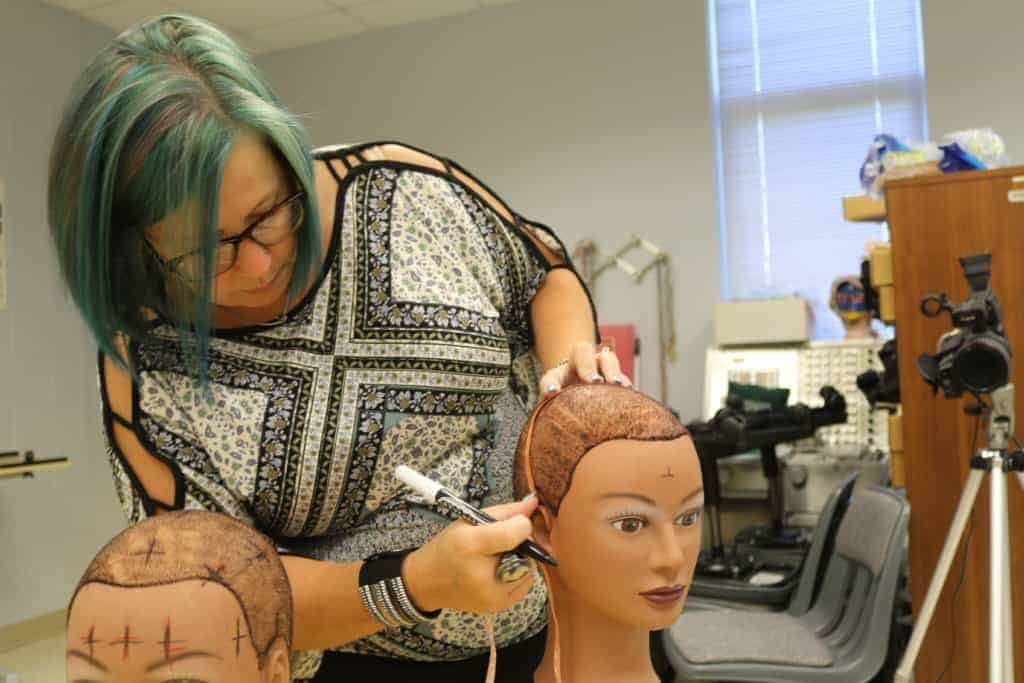
If there is a program President Ross is most excited about looking forward, it’s the college’s recidivism program at Pamlico Correctional Institution. Ross worked with Sen. Norman Sanderson, who represents Pamlico County in the N.C. Senate, to secure $650,000 in recurring state funds for a pilot associate degree program that provides prisoners with job training and life skills.
“What has become clear to me is that we need to have a philosophy, when someone goes into prison, the very first day is a beginning of an educational process to enable them to be successful human beings,” Ross said.
In its first year, which began in August 2017, 57 inmates enrolled and completed the year. Seventy-nine are enrolled for this semester. Ross hopes Pamlico can serve as a model for other communities across the state and country.
“We are willing to play the Don Quixote role, chasing windmills, because sometimes, we can catch those windmills and lives are made better,” he said. “As long as we’re always doing it for the right reasons, not to bring ourselves some type of benefit, as long as we’re thinking about human beings out there, even the most unpopular human beings in our nation, which may well be prisoners … my career has been a testament to extraordinary things can happen.”
